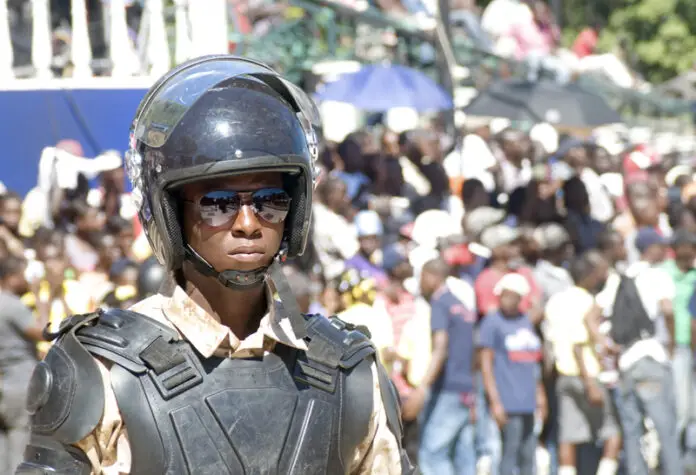A brutal weekend massacre in Port-au-Prince left at least 184 people dead, underscoring the growing instability in Haiti, which has been grappling with unchecked gang violence for years.
The killings, described as a targeted attack against elderly residents in the Cité Soleil neighborhood, were reportedly ordered by Monel “Mikano” Felix, leader of the Wharf Jérémie gang.
According to the National Human Rights Defense Network (RNDDH), the gang leader sought guidance from a voodoo priest after his child fell ill and later died on Saturday. The priest allegedly blamed elderly residents in the area, accusing them of practicing witchcraft. “Felix ordered the killings, and at least 110 people aged 60 and older were slaughtered over the weekend, many with machetes and knives,” RNDDH stated.
Cité Soleil, one of the most densely populated and impoverished neighborhoods in Port-au-Prince, has long been a flashpoint for violence. This most recent massacre is one of the deadliest incidents in Haiti’s capital this year. United Nations High Commissioner for Human Rights Volker Türk confirmed the death toll during a press briefing in Geneva, noting that the killings have brought Haiti’s gang-related death toll in 2024 to at least 5,000.
“This is an appalling example of the brutality that has taken over large parts of the country,” Türk said, urging the international community to provide increased support to Haiti.
The gang’s hold over Port-au-Prince and other regions has expanded amid ongoing political turmoil, which began after the assassination of President Jovenel Moïse in 2021. According to human rights groups, as much as 80% of the capital is now under the control of armed criminal organizations.
The escalating violence has had wide-reaching consequences, including the suspension of international flights to Haiti. Major U.S. airlines, such as American Airlines, JetBlue, and Spirit, have indefinitely halted service to the country. The Federal Aviation Administration (FAA) initially imposed a 30-day ban in November after gang-related gunfire struck commercial aircraft departing from Toussaint Louverture International Airport in Port-au-Prince. That ban has since been extended until at least March 2025.
“American Airlines suspended flights indefinitely over safety concerns, and JetBlue and Spirit have also not resumed operations. The only available commercial flights are operated by a Haiti-based carrier, Sunrise Airways.”
These suspensions have worsened Haiti’s transportation crisis, as gangs also control major roads, making travel within the country exceedingly dangerous.
The violence in Cité Soleil has displaced thousands, and conditions in the area remain dire. Residents face restricted mobility as gang members have blocked off key streets and even limited cell phone communication.
“The insecurity has created a humanitarian crisis. Over 700,000 people in Haiti are now internally displaced, half of them children,” the UN reported. Relief efforts have been hampered by the gangs’ control over distribution routes, leaving many without food, clean water, or access to medical care.
Haitian authorities have pledged to address the gang crisis. In a statement, the government described the massacre as “monstrous crimes” and vowed to bring the perpetrators to justice. “We are mobilizing all available forces to annihilate these criminals,” officials said.
Despite these pledges, efforts to contain gang violence have been largely unsuccessful. A UN-backed Multinational Security Support Mission, led by Kenyan police, was deployed earlier this year but has struggled to make significant progress.
The situation has prompted renewed calls for international aid. The UN and Haitian officials have urged countries to improve efforts to curb arms trafficking into Haiti, which fuels the gangs’ growing power. Much of the firearms used by criminal groups are trafficked from the United States, according to international watchdogs.
In October, the Gran Grif gang claimed responsibility for killing over 115 people in Pont-Sonde, a town located in Haiti’s agricultural Artibonite region. The gang stated the attack was in retaliation against residents who had supported a local self-defense group in disrupting their road toll activities.
In a region struggling with entrenched poverty and political instability, the weekend’s massacre has amplified the urgency for action. For the residents of Cité Soleil, however, the challenges of survival persist, with little hope for immediate relief.

